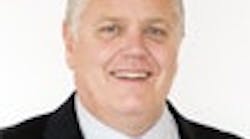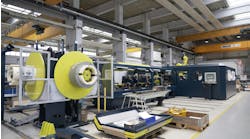I woke up one morning, and something was out of whack with me physically. My body didn't want to move. Something was wrong, and the main symptoms were joint pain, stiffness and weakness. Alone in a hotel, 1,800 miles from home, it took me 30 minutes to get out of bed. With a lot of fear and worry, I went to the doctor.
At the initial doctor visit, the doctor carefully listened, took some notes, some incorrect, and promptly ignored my suggestions. That started the caution light flashing because as an engineer, it is very important to listen to your customers.
The doctor had no diagnosis, but made a guess and sent me to a specialist. Sometimes a guess is fine, but, if guessing, an engineer would likely consider performing a design of experiment or, at a minimum, take the time to do a little more research to learn more—the proactive engineer. The specialist made an educated guess on my diagnosis—arthritis— and prescribed a toxin. Literally, if taken every day, it's toxic.
I asked the doctor what specific medical evidence indicated I had arthritis, and she provided none. So, I had a diagnosis with zero medical evidence to back it up. Zero! Other than a blood test showing I had inflammation, which just confirmed the obvious symptoms I had, I also had an elevated white blood cell count. I thought I had an infection somewhere, but my opinion didn't matter.
As an engineer with limited data, I thought it was important to test the solution to a problem to make sure the root cause was corrected. After all, what the doctor prescribed for me was suppressing my immune system, and I thought I had an infection. The treatment made me feel worse—I felt it was killing me.
The absolute answer from all my doctors only considered my symptoms, and medical science doesn't know the cause of arthritis. The testing did not support diagnosis. An engineer would follow up with additional questions, study the problem and then test the solution. Doctors should learn from this. Get the data; don't ignore it; and find the root cause.
ALSO READ: How have analytics affected diagnostic-tool development?
The root cause
Despite eight doctor visits and dozens of medical tests, I found the root cause was a tooth. I had a root canal two years ago, and the tooth was still bothering me. When my tooth had a bad day, my "arthritis" symptoms were worse. It took me a while to make the connection, and the doctors never asked, but they should have, because I told them all about my year-long symptoms.
After several return visits, all the standard diagnostic steps the dentist took said there was nothing wrong with the tooth. As an engineer, I thought the dentist had some flawed procedures or methods and nothing was fixed, so I asked to be referred to a specialist.
After a fancy 3D x-ray of my teeth, the endodontist specialist said I had an abscessed tooth, and a second root canal procedure was performed. Two days after the procedure removed the infection from my tooth, the year-long joint pain, stiffness and fatigue that I had been suffering, in all major joints of my body, ended abruptly. I went from feeling like an 80-year-old slightly crippled old man every minute of every day back to a normal middle-aged guy. It was a huge change after a year of suffering.
To me, the tooth was the obvious cause, and the dentist quietly agreed. However, the endodontist wouldn't even consider that an infection in a tooth could cause arthritis-like symptoms. Ignoring the truth and the facts doesn't change anything. My symptoms were gone, that is until the endodontist performed the final root filling in the tooth causing a massive infection to reoccur three days after the procedure. Of course, the endodontist blamed it on a sinus cold. He said, "It's going around."
In engineering, it is good practice to contract experts from system integrators and machine builders to fix the difficult problems. Knowing that, I decided to go to an ear, nose and throat (ENT) specialist. I told the ENT specialist my history, and he laughed and said it's the tooth. He estimated that 50% of the patients visiting his office have sinus pain due to problem teeth or dental implants, and it can cause many different health problems. It seems like doctors should talk more and pull more teeth.
I cannot help but think that engineers are smarter than doctors. While doctors listen, get the data and try to understand the problems before making decisions, it's still just the practice of medicine. Many of the doctors have built a career hiding behind the practice, and some use it to ignore the facts. Clearly, it is not all properly engineered because poorly operating equipment would not be tolerated.
Accepting a decision without the data to back it can lead to an improper diagnosis or solution. Ignoring facts also causes problems. It doesn't really take an engineer to figure that out; a doctor should be able to tell you that.






